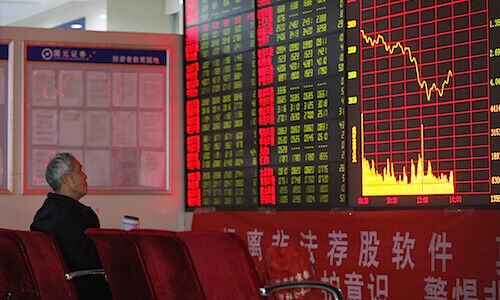Will China’s Rally Fizzle Out?
Chinese authorities recently held a press conference with markets eagerly anticipating potential details about fiscal stimulus in the future, though disappointment followed. Private banks share their views on China moving forward.
Last week, China’s National Development and Reform Commission (NDRC) held a press conference on the country’s economic policy. Markets were disappointed as there was no mention of the size of the upcoming fiscal stimulus as media reported the possibility of a 2 trillion Chinese yuan ($280 billion) package.
Since then, the Hang Seng Index and the CSI 300 shed around 9 percent and 8 percent, respectively, following a sharp rally triggered by recent stimulus announcements and a shift towards a pro-economy policy tone.
Details to Come Later
According to UBP, the timeline for fiscal measures is uncertain as significant announcements may need to wait until the upcoming National People’s Congress Standing Committee meeting in late October or early November. Fiscal targets for 2025 will also only be announced in March.
«We anticipate around CNY 2 trillion in ultra-long and special purpose bonds, which will include the proposed CNY 1 trillion injection into major state banks to enhance their ability to support the economy and real estate sector,» said Carlos Casanova, UBP’s Asia senior economist, in a note.
«Overall, these measures (around 1.5 percent GDP) could potentially represent another step in China’s ongoing reflation efforts rather than a decisive 'whatever it takes' moment.»
Onshore Market: Better Risk-Reward Profile
In terms of the market outlook, Bank of Singapore believes that the onshore A-shares in China are «relatively more attractive at the index level in the near-term» compared to the offshore H-shares after a rally of more than 20 percent for the MSCI China over the past two weeks.
«With the onshore A-share market more sensitive to policy stimulus and more momentum-driven with higher level of retail investor participation, it is likely to have a higher chance to overshoot,» the bank said in a research report, highlighting large-cap, index-heavy internet and platform companies and leading consumption names as its preference.
Offshore Market: More Selectiveness Required
And on the offshore market, Julius Baer suggested in a note against the investor approach to «buy everything China related» witnessed in the past two weeks.
«Investors were chasing for broad exposure and did not focus on stock selectivity. This is how a China rally has often started, but an indiscriminative approach to buying stocks has historically not lasted long,» the bank said. «After a few days of heavy profit taking, we expect the offshore market to move on to the second phase of the rally, which features slower gains, higher volatility but with the basics – earnings and valuations – back in focus.»
In a UBS Global Wealth Management video, chief investment office head of China equities Eva Lee also suggested revisiting allocations to diversify out of unfavorable stocks, adding that the bank expects H-shares to deliver mid to single high digital returns in the coming 12 months.



























